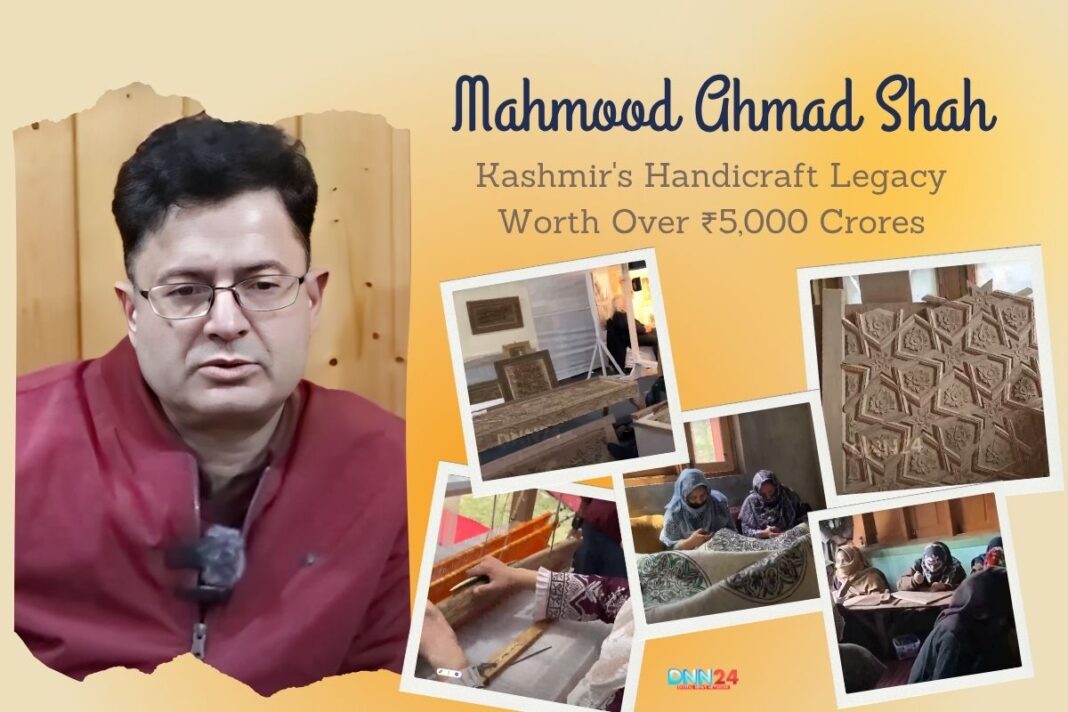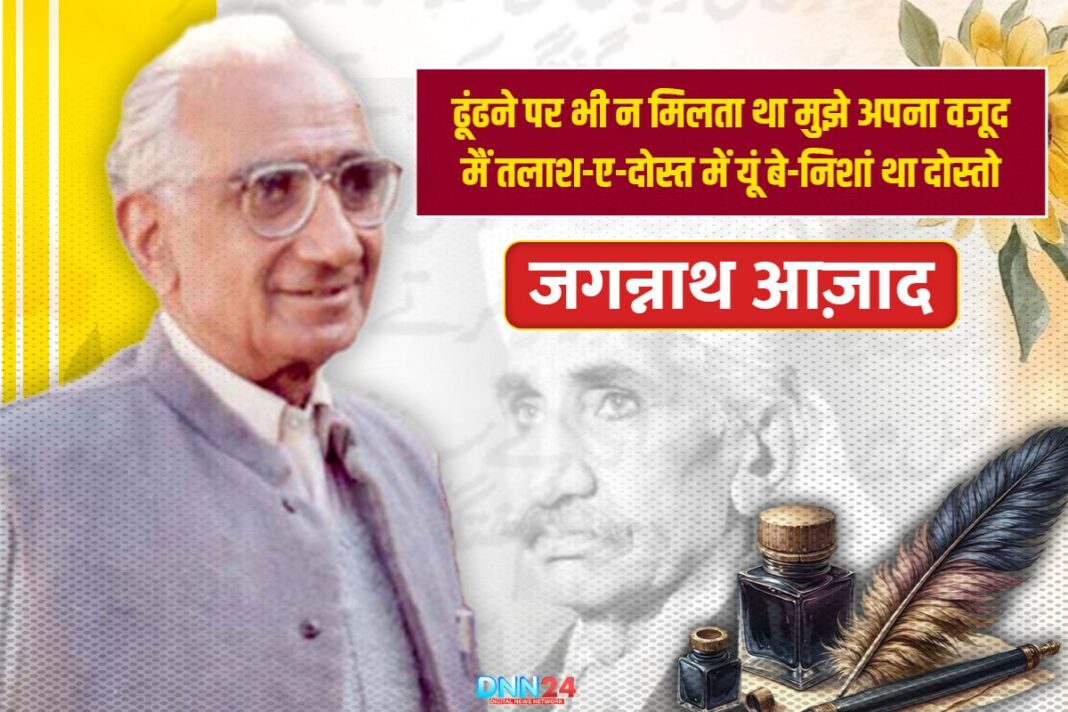Kashmir’s handicraft industry is a magnificent testament to the valley’s rich cultural heritage, weaving together tradition and commerce in an intricate pattern spanning centuries. Highly valued at more than 5,000 crores, this industry is not just an economic phenomenon but the very essence of Kashmir itself. Mahmood Ahmad Shah, former Director of Handicrafts & Handloom, Kashmir, reveals the fascinating world behind these exquisite creations that have captivated global markets.
The goods produced in this industry are a fantastic array of crafts, ranging from the world-renowned Pashmina shawls featured in international fashion shows to the fabulous Papier-mache works, which delight homes worldwide. The most amazing part about this industry is the human factor; more than 3.4 lakh skilled artisans spend their entire lives saving these traditional methods, and that knowledge is passed on as family heirlooms. These craftspeople represent skilled workers and cultural ambassadors who carry forward Kashmir’s artistic legacy with pride and dedication.
An Artistic Paradise of Treasures
The repertoire of Kashmiri handicrafts is quite incredible; it has 15 main categories of crafts, and 63 crafts were notified by the government. Among these, seven crafts have received the prestigious Geographical Indication (GI) tag, marking them as authentic products of Kashmir’s unique geographical and cultural environment. The Legendary Pashmina, the skill of weaving Kani, the artistic Sozni embroidery, the artistic Papier-mache work, the Khatamband, and the good ceiling work using woods, the detailed walnut woodwork, and the magnificent Kashmiri carpets are some of the GI-tagged crafts.
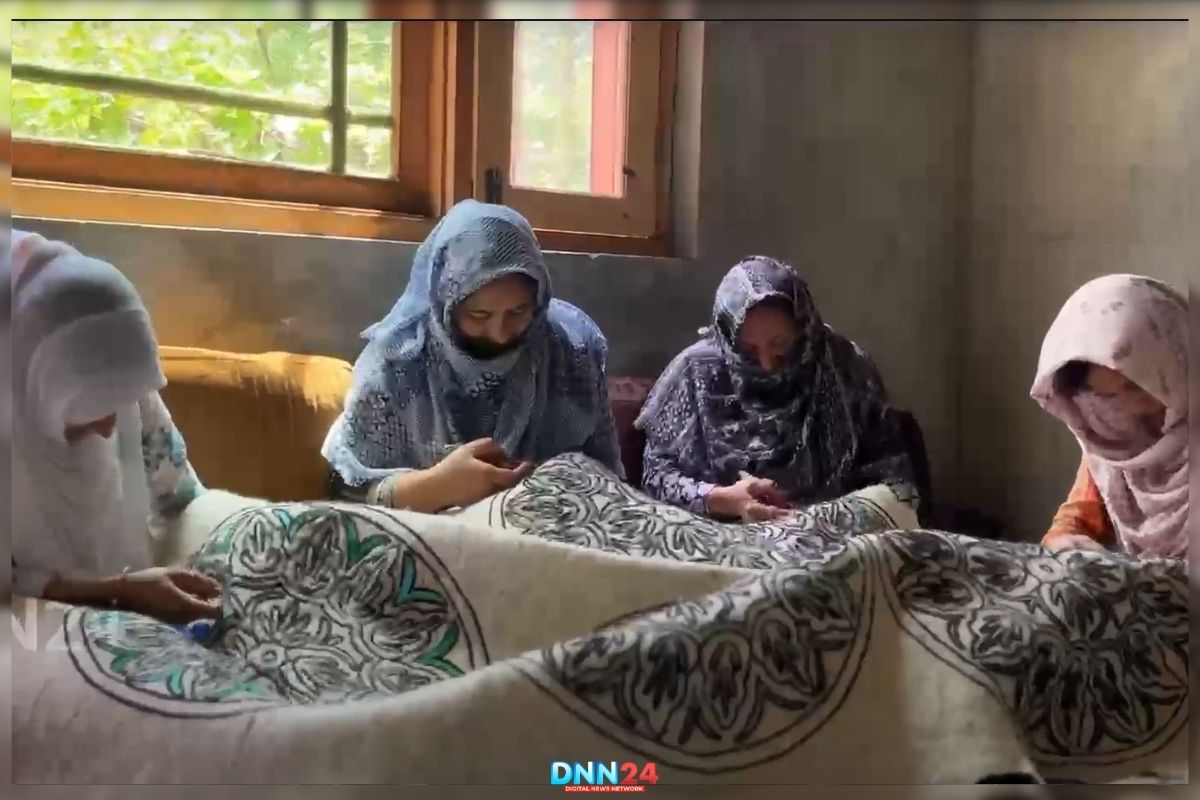
Beyond these seven gems, numerous other crafts contribute to Kashmir’s artistic wealth. The industry creates marvelous chain-stitch embroidery, conventional use of Gabba rugs, fine Namda felt carpets, classy silverware, and sophisticated copperware. Individually, each craft reveals a history of cultural development, technological prowess, and artistic inspiration built up over thousands of years. There are about 2,500 registered manufacturers in the sector, making it an industry with high output since the earnings are estimated to be 115 crores in exports yearly, showing it to be an integral part of the local jobs and the national foreign exchange earnings.
Government Efforts: Giving Wings to Artistic Fantasies
The Jammu and Kashmir Government launched a comprehensive suite of schemes to support and empower the local artisans after the progressive 2020 policy framework was announced. The scheme of Financial Assistance to Cooperative Societies pulls the artisans into cooperative societies and gives them collective bargaining power, making access to financial resources very easy. The program has been especially successful in rural regions where single artisans could not reach formal financial networks.
The Artisan Credit Card plan is a paradigm shift in the provision of artisans and their financing in the form of bank credit cards, with up to 7percent interest subsidy over five years. Access to working capital has been democratized with this scheme, which has helped artisans afford the cost of raw materials, equipment upgrades, and expansion of their operations without incurring high-interest-rate expenses. Additionally, the Education Scheme for Artisans’ Children ensures that the next generation receives quality education, breaking cycles of poverty while maintaining connections to traditional crafts. The Karigar Scheme links potential learners with National and State Award-winning master craftspeople, creating a scope for skill transmission and creativity through conventional patterns.
Technology and tradition: GI Tagging revolution.
To counter the contemporary ills of authenticity and market credibility, Kashmir has also developed a QR code-based GI tagging system unique to India, the first of its kind in the country. The technological solution is appropriate because it addresses the serious challenge of fake products that have overwhelmed markets and undermined the fame of quality Kashmiri crafts. The system operates through specialized laboratories at the Pashmina Testing and Quality Certification Centre (PTQCC) and the Indian Institute of Carpet Technology, where genuine products receive authenticated tags.
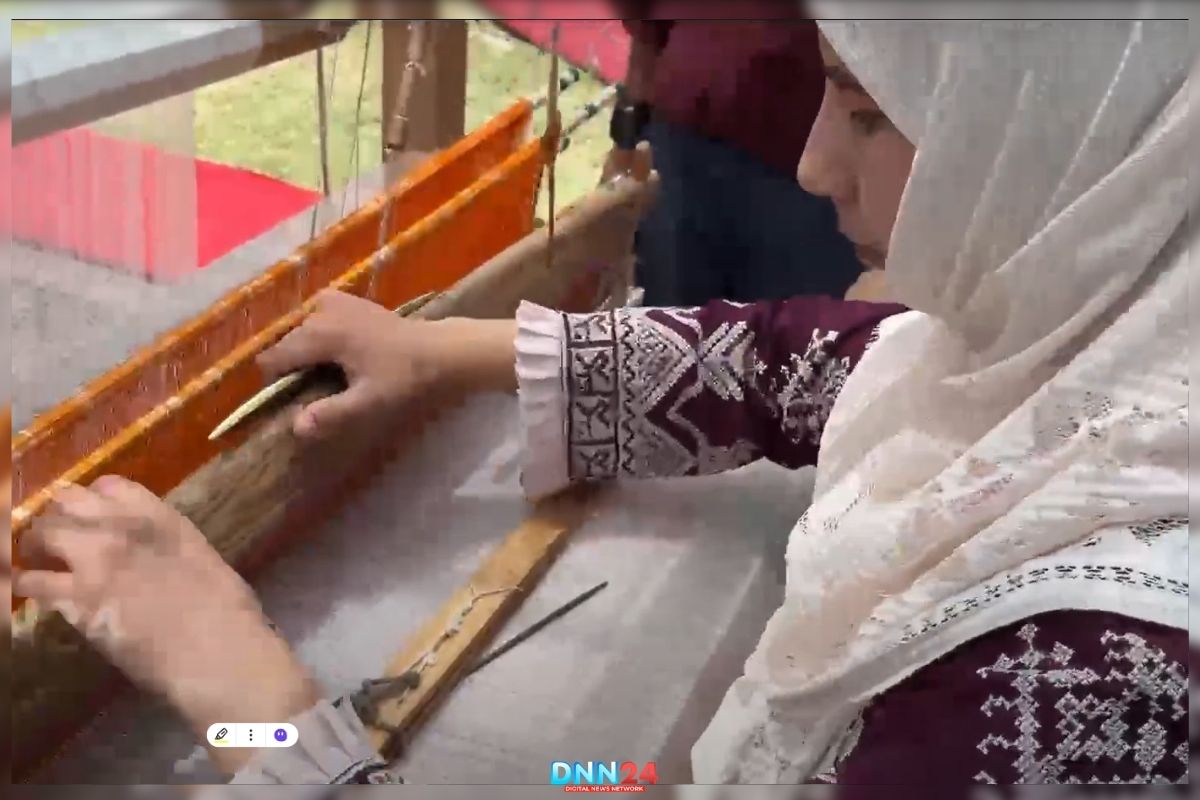
When customers scan these QR codes using smartphones, they access comprehensive information about the product’s authenticity, including photographs, specifications, dimensions, and even details about the individual artisan who created the piece. This openness has transformed the confidence built by the consumers, which has become a significant marketing advantage of authentic products. The system covers GI-tagged crafts and other traditional items like Namda, Gabba, Chain-stitch, Kavel, and metalware, ensuring comprehensive coverage of Kashmir’s craft ecosystem.
Mahmood Ahmad Shah: Market Dynamics and Quality Assurance
The department has a strong quality control wing that carries out regular market inspections and acts on consumer complaints. It has been an active strategy followed by notable enforcement activities such as denying listing of inaccurate product traders and imposing fines on the culprits. The primary source of market intelligence is tourist and buyer complaints, making it possible to develop specific interventions that support consumers and artisans.
The introduction of Minimum Support Price (MSP) for carpets and Pashmina products has created a stable economic foundation for artisans, ensuring fair compensation for their skilled labor. This pricing system, which took effect in 2021, has done away with exploitative measures and put up a transparent threshold for government and private-sector purchases. Rural artisans have been especially helped with the MSP system, whereby they were at a significant disadvantage during price negotiations earlier.
International Reputation and Aims in the Future
Srinagar’s recent recognition as a UNESCO Creative City for Crafts and Folk Arts and its designation as a World Craft City have significantly elevated Kashmir’s international profile. These high-profile awards have seen international networking and cultural opportunities. The recent celebration of the World Craft Council’s Diamond Jubilee in Srinagar, featuring international delegates and artisans, demonstrated Kashmir’s growing influence in global craft circles.
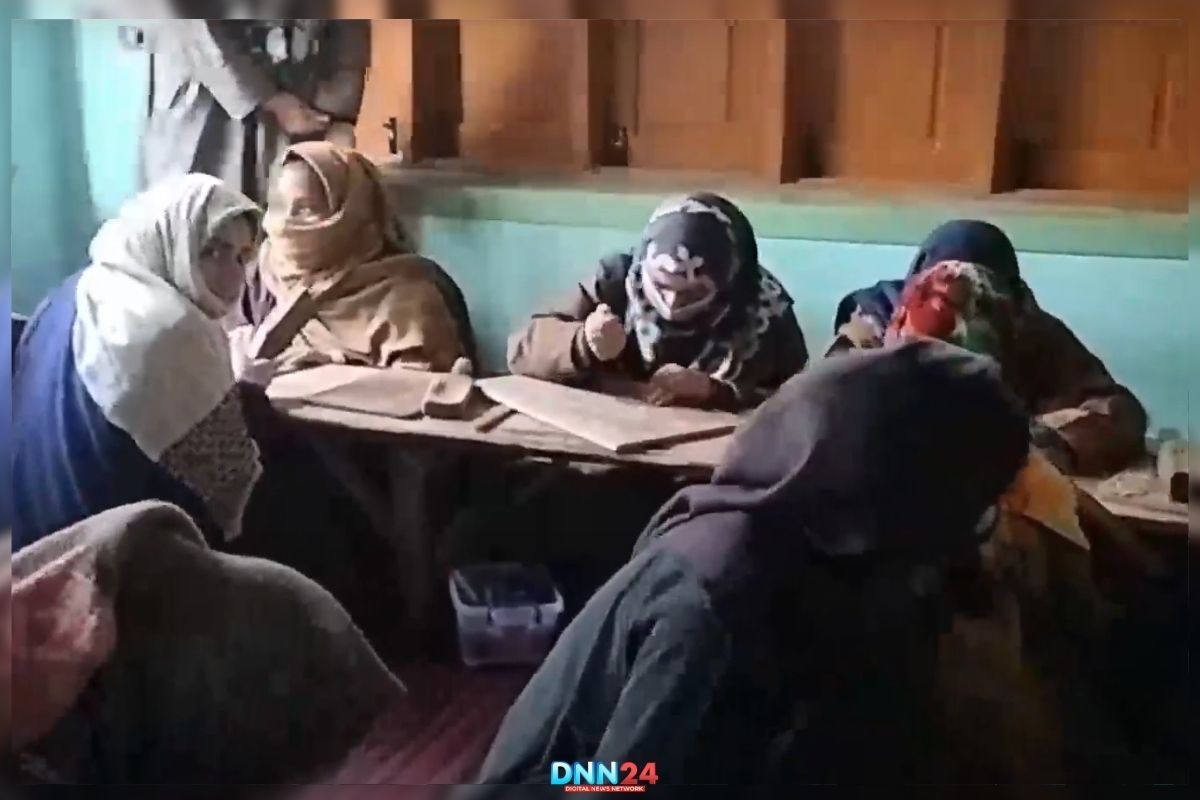
The department has developed an extensive brand plan that emphasizes digital promotion using social networks and has derived its conventional methods of promoting the brand. This multi-channel approach ensures that Kashmir’s crafts reach diverse global audiences while preserving their authentic character. The emphasis on women’s participation is particularly noteworthy, with approximately 435 training centers operating across the valley, where female candidates constitute the majority of trainees, ensuring gender-inclusive growth in this traditional sector.
Kashmir’s handicraft industry perfectly combines cultural preservation and economic development, where ancient techniques meet modern marketing strategies, and traditional wisdom embraces technological innovation. With continued government support, international recognition, and growing global appreciation for authentic handcrafted products, this ₹5,000+ crore industry is poised for even greater heights, carrying forward Kashmir’s artistic legacy into the future.
Also Read: Hilal Ahmad Wani: Kashmir’s Silent Cricketer Conquered World Deaf Cricket League
You can connect with DNN24 on Facebook, Twitter, and Instagram and subscribe to our YouTube channel.

